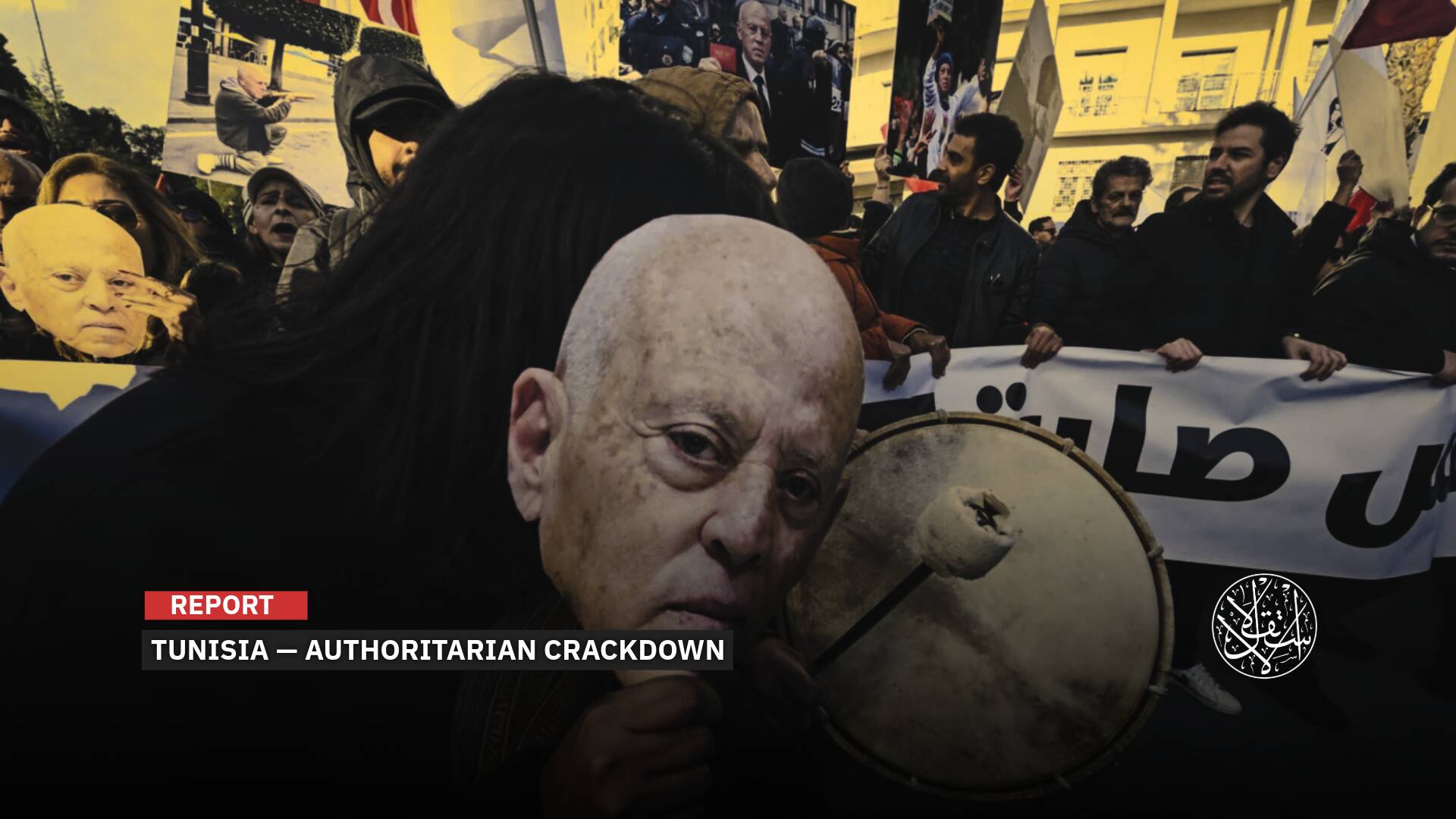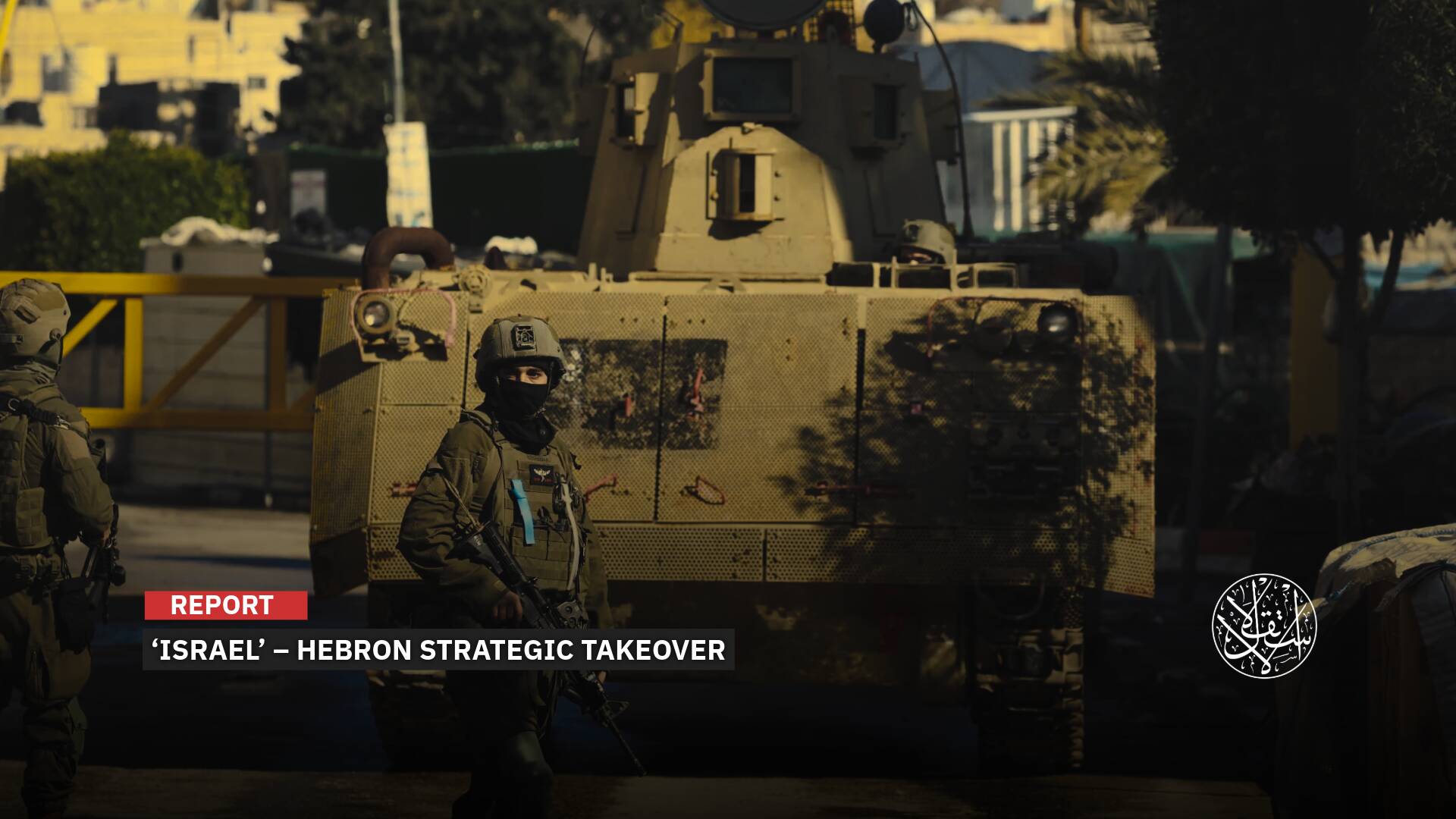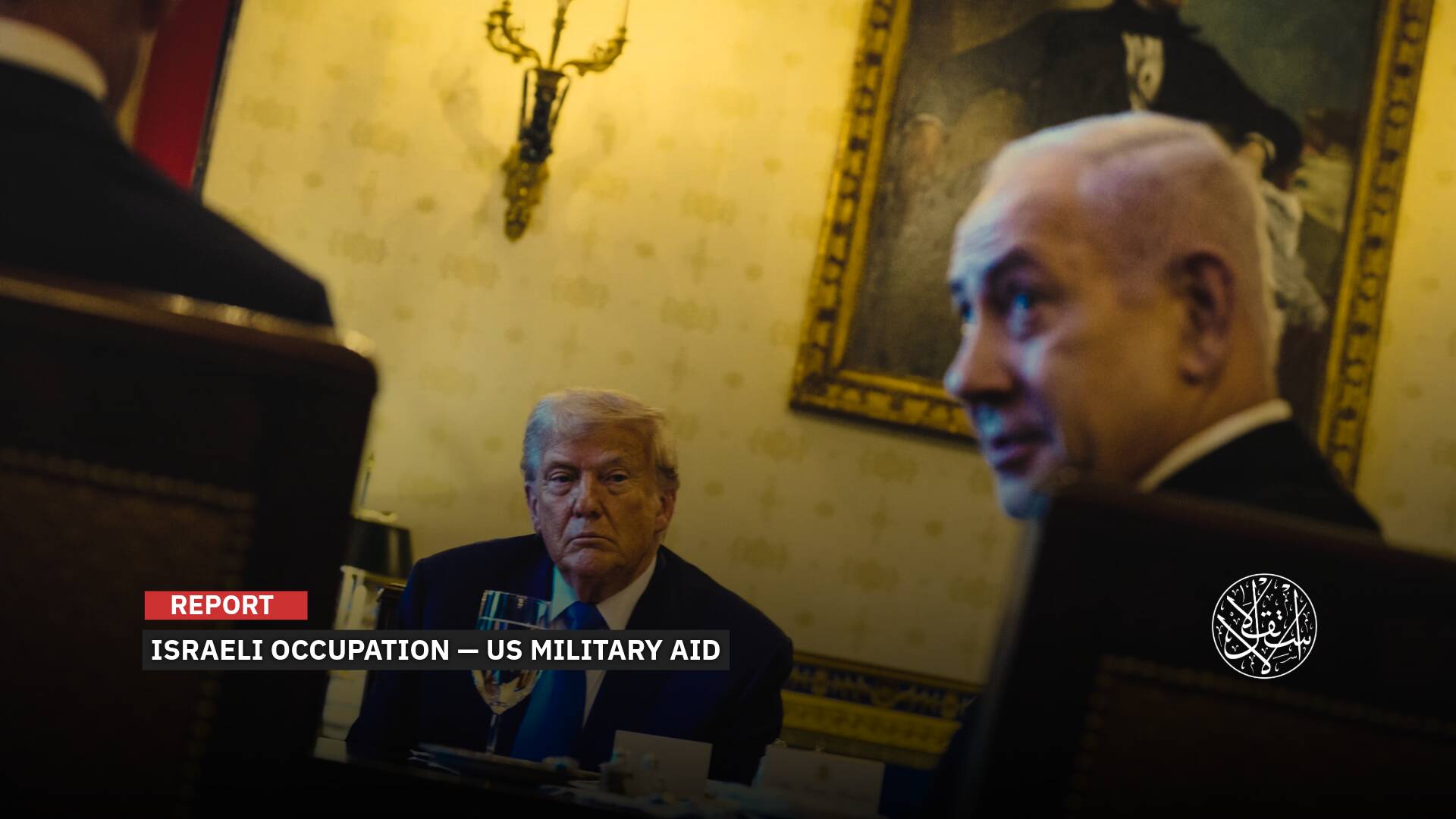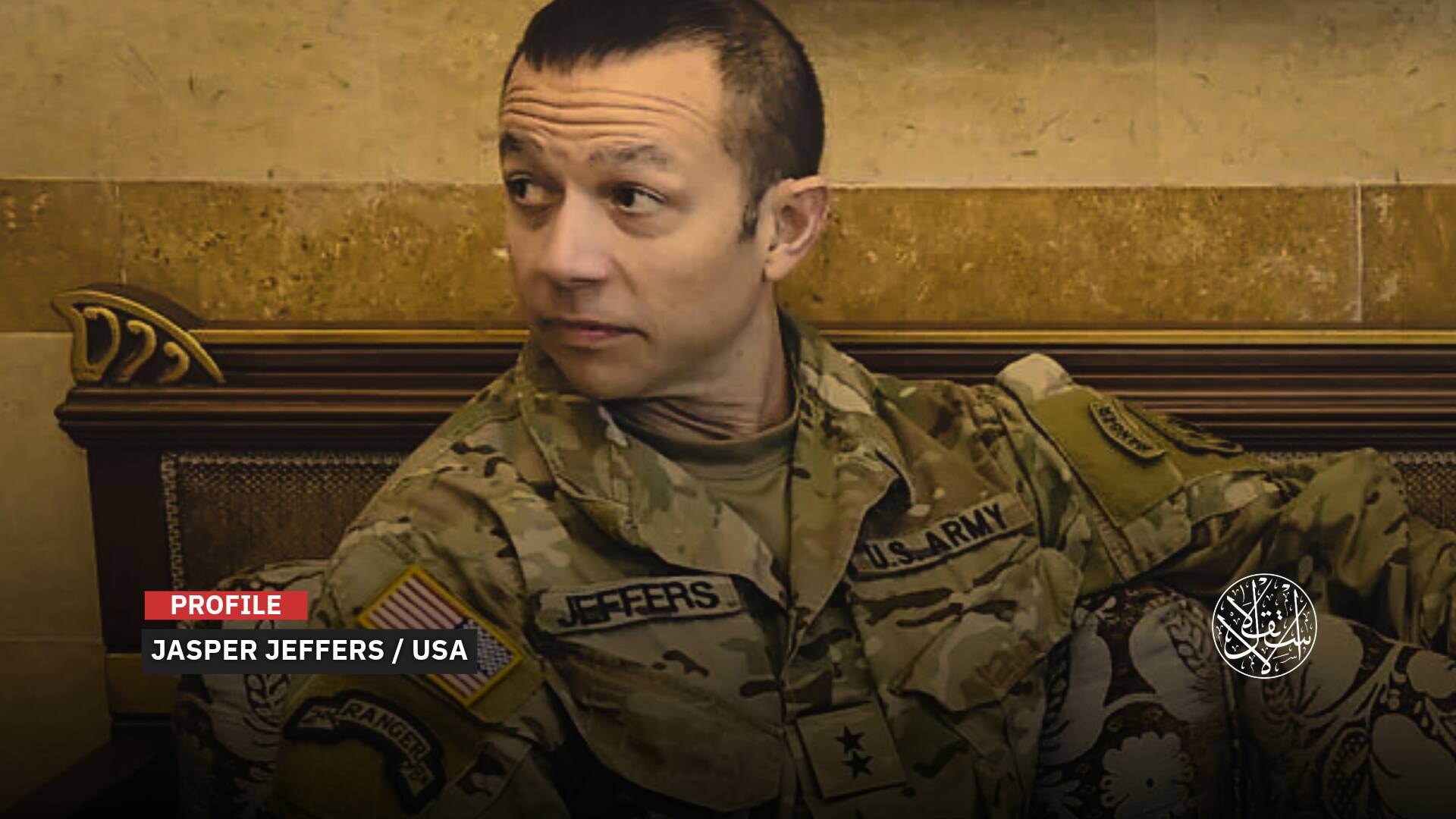Sectarian Exploitation: How 'Israel' Challenges the Unified Syria Project?
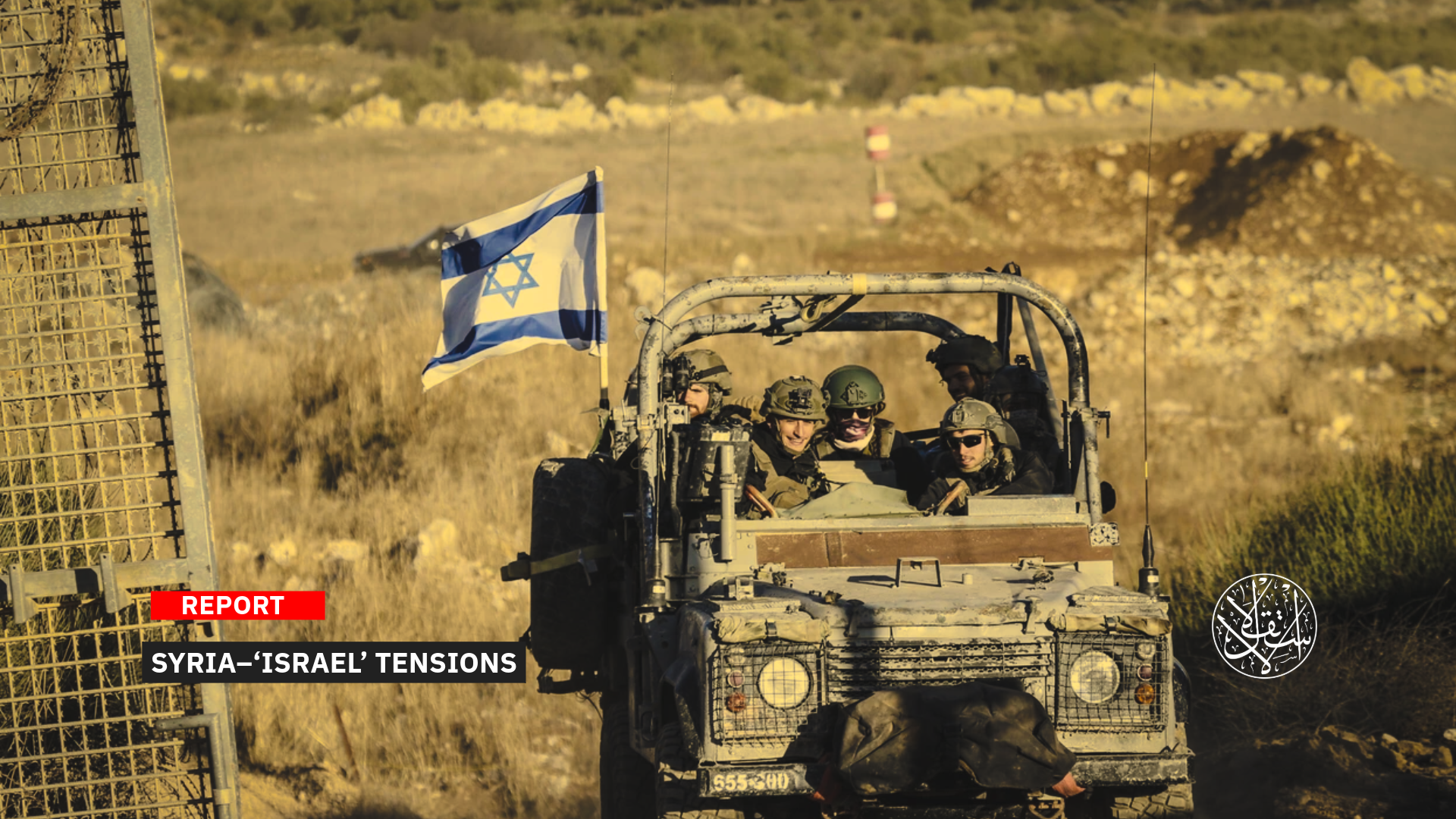
“Israel has openly declared its desire to see Syria split along sectarian and ethnic lines.”
Tensions have escalated significantly between “Israel” and Syria over the past few days in Druze-populated areas in southern Syria.
The Israeli Occupation’s government recently accused the Syrian authorities of failing to protect the country’s Druze minority.
The Israeli military has declared that it is prepared for all scenarios, while calls have intensified in “Israel” for military intervention in Syria on behalf of the Druze.
Over the past two days, “Israel” has expanded its intervention in Syria, launching violent airstrikes on Syrian territory, which ranged from airdrops to distribute aid and bring wounded Druze to “Israel”, to undisclosed covert operations.
While “Israel” claims that its intensive airstrikes in Syria are aimed at protecting the Druze community, observers believe this justification is merely a humanitarian and political cover to impose a new equation in southern Syria.
In turn, Syrian Information Minister Hamza al-Mustafa said that “Israel is trying to exploit sectarian divisions to gain a foothold in Syria as part of its ongoing plans.”
It is worth noting that “Israel” continues to view the new Syrian administration, which took power on December 8, as a growing threat on its borders.
Israeli Occupation's Intervention
“Israel” has long used airstrikes as part of its policy tools in Syria, rather than as limited military operations.
The Jerusalem Post clearly wrote that “Israel” has used airstrikes as a policy in Syria, starting with targeting Iranian arms convoys bound for Hezbollah, then focusing strikes on Iranian positions, and now targeting the new Syrian government.
It noted that these strikes were not necessarily linked to a direct threat, but rather were used as an alternative to policy.
It added that the new Syrian government, which has not issued threats to “Israel”, has also become a legitimate target within this strategy.
Since the new Syrian government took office at the end of last year, “Israel” has continued to carry out dozens of airstrikes, under the pretext of targeting the remaining arsenal of the former regime or the Iranian threat.
However, the official discourse began to gradually shift at the beginning of this year, taking on a humanitarian character focused on protecting minorities.
On February 23, Israeli Occupation’s Prime Minister Benjamin Netanyahu outlined his government's policy on Syria, declaring that “Israel” would not allow any military presence near its border, particularly by the New Syrian Army or Hay'at Tahrir al-Sham.
He also stated that any threat to the Druze in southern Syria would be unacceptable.
Later, Netanyahu explicitly announced that the Israeli army would remain on Mount Hermon and the buffer zone in the Golan Heights for an indefinite period, a clear declaration of intent for continued intervention.
“Israel's” military presence has recently accelerated, under the banner of protecting the Druze community.
Although “Israel” reversed its decision to allow hundreds of Syrian Druze workers to enter its territory, it has continued to exploit the Druze community on every occasion related to Syria.

Sectarian Escalation
Last week, an audio recording circulated on social media attributed to a Druze cleric in which he allegedly insulted the Prophet Muhammad, peace be upon him.
Although the person concerned and the Syrian Ministry of Interior denied the authenticity of the record, the incident became the spark for an unprecedented sectarian escalation, especially after armed clashes erupted in areas surrounding Damascus with a Druze majority.
Hours after the cessation of military operations in southern Damascus, Sheikh Hikmat al-Hijri, the most prominent spiritual leader of Syria's Druze community, called for the intervention of international protection forces in Syria.
He condemned an unjustified genocidal attack against members of his community, following clashes in two Druze-populated areas (Jaramana and Ashrafiyat Sahnaya).
Meanwhile, Sheikh Mowafaq Tarif, the spiritual leader of the Druze community in “Israel”, held a series of meetings and communications with Israeli officials, during which he called for the rights and dignity of the Druze in Syria to be guaranteed.
“Israel’s” Interior Minister Moshe Arbel also sent a letter to Netanyahu, calling for military or political intervention.
“Israel’s” Foreign Minister Gideon Sa'ar, in turn, called on the international community to play its part in protecting minorities in Syria—especially the Druze.
On the morning of May 2, the Israeli military announced the bombing of targets near the presidential palace in Damascus, an unprecedented escalation.
The Syrian presidency considered it a direct attempt to undermine the state's sovereignty and its supreme institutions, and vowed to respond.
Netanyahu and Israeli Army Minister Yisrael Katz said in a joint statement that this strike was a message to the new Syrian government that any move toward the south or any threat to the Druze would be met with a firm response.
The Israeli strike near the presidential palace in Damascus came just hours after Druze leaders in southern Syria issued a statement declaring their complete rejection of any attempt to divide Syria, affirming the country's unity and rejecting foreign interference regardless of its pretext.
Observers considered the Druze leaders' statement a strong blow to “Israel's” attempts to exploit the minority issue to impose a new reality that serves its strategic interests in southern Syria.
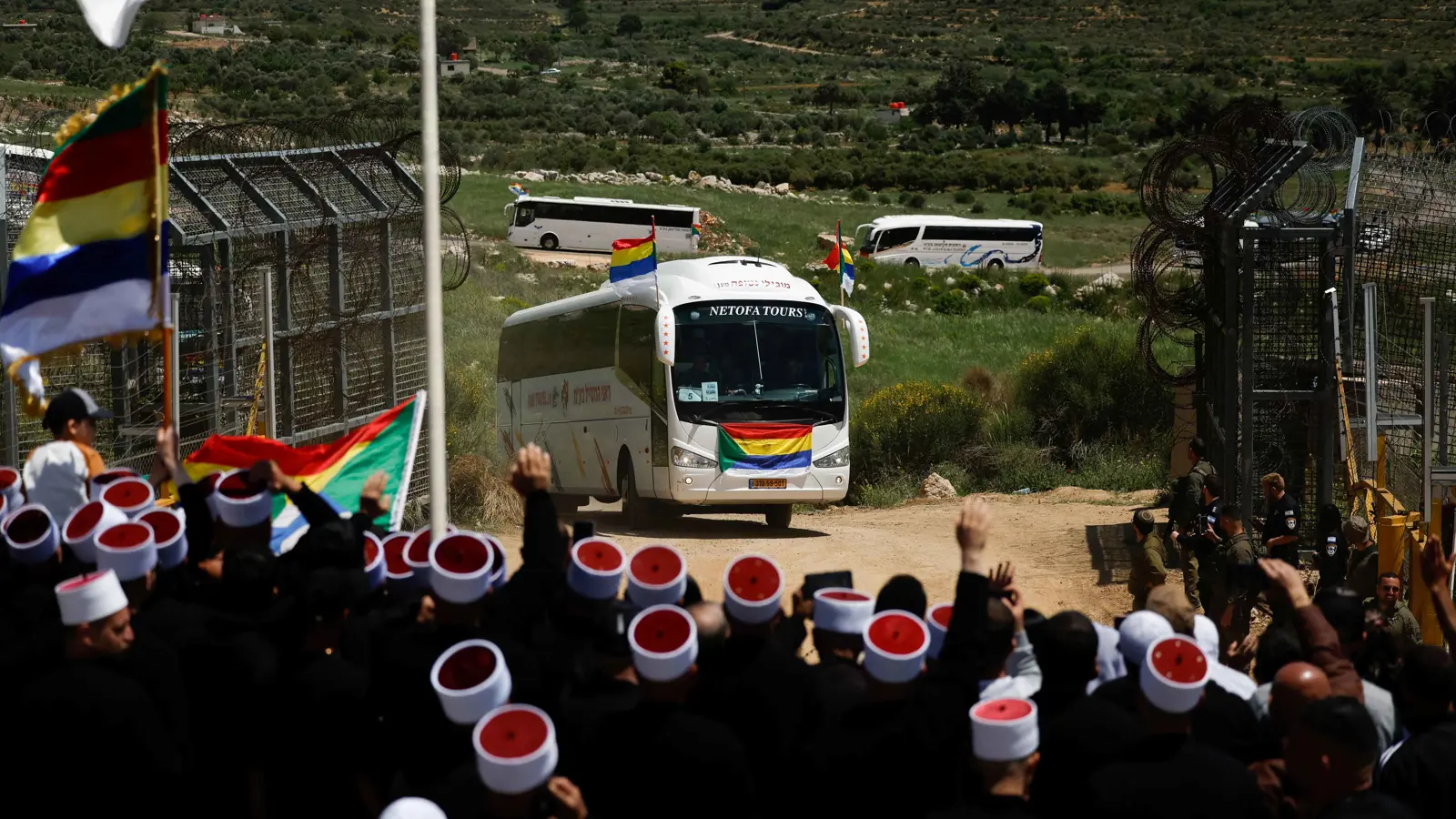
However, “Israel” continued its escalation, and on the evening of May 2, it announced new airstrikes on several military sites, anti-aircraft systems, and surface-to-air missile infrastructure, reflecting its insistence on establishing new rules of engagement in southern Syria.
“Israel's” Kan TV reported that “Israel” is preparing a list of military and government targets for future attacks inside Syria.
On May 3, the Israeli military revealed that it was deployed in southern Syria, stressing its readiness to prevent enemy forces from entering Druze areas.
It did not clarify whether it had deployed again in Syria outside the security zone it has established on the Golan border.
In a significant development with both humanitarian and political dimensions, the Israeli army also announced that 15 Druze Syrians were evacuated to “Israel” for medical treatment.
Although this move was framed with humanitarian rhetoric, its timing suggests an attempt to penetrate the Syrian-Druze scene through humanitarian aid.
The Druze constitute approximately 3% of Syria's population, estimated at around half a million people, concentrated primarily in the As-Suwayda Governorate and southern Damascus.
In “Israel”, their population numbers approximately 150,000, many of whom serve in the Israeli military, some holding senior positions, unlike the Druze in the Golan Heights, most of whom refuse to recognize “Israeli sovereignty” over their territory.

Expansionist Strategy
It is noteworthy that Tel Aviv seeks more than just protecting a specific population group, but rather to shape a new security and political environment on the northern front, taking advantage of the profound shifts in the balance of power in Syria after the fall of the Bashar al-Assad regime.
“Israel's” investment in the Druze situation, its ongoing discussion of minorities in Syria, and the need for international support for them, are part of a broader approach that seeks to test President Ahmed al-Sharaa's ability to act under various pressures.
Observers believe that “Israel” is expected to continue, in the short—and perhaps long—term, to use the card of protecting the Druze and countering Turkish influence to justify its intervention in Syria.
On the other hand, Haaretz warned that Israeli intervention and threats against the Syrian government do not serve Israeli security interests and could place the Druze in a position where they appear subservient to “Israel.”

Political researcher Ibrahim Khatib told Al-Estiklal that Israel's interventions in Syria reflect an expansionist strategy through which it seeks to reshape the new Syria as a divided and weak federal state and keep it within the circle of maximum Israeli pressure.
He also pointed out that the recent Israeli raids near the presidential palace in Damascus are a direct threat to President Ahmed al-Sharaa and an attempt to lend credibility to “Israel's” promises of protection to the Druze.
Mr. Khatib indicated that the resumption of Israeli attacks on Syria after a hiatus of about a month is an attempt to test Turkiye's willingness to coexist with the new reality “Israel” is seeking to impose in Syria, coinciding with the faltering negotiations between Ankara and “Tel Aviv.”


